Ecological ComplexitySCIE
國(guó)際簡(jiǎn)稱:ECOL COMPLEX 參考譯名:生態(tài)復(fù)雜性
- 基本信息:
- ISSN:1476-945X
- E-ISSN:1476-9840
- 是否OA:未開(kāi)放
- 是否預(yù)警:否
- TOP期刊:否
- 出版信息:
- 出版地區(qū):NETHERLANDS
- 出版商:Elsevier
- 出版語(yǔ)言:English
- 出版周期:Quarterly
- 出版年份:2004
- 研究方向:環(huán)境科學(xué)-生態(tài)學(xué)
- 評(píng)價(jià)信息:
- 影響因子:3.1
- H-index:50
- CiteScore指數(shù):7.1
- SJR指數(shù):0.607
- SNIP指數(shù):1.066
- 發(fā)文數(shù)據(jù):
- Gold OA文章占比:13.98%
- 研究類文章占比:93.75%
- 年發(fā)文量:16
- 自引率:0
- 開(kāi)源占比:0.063
- 出版撤稿占比:0
- 出版國(guó)人文章占比:0.08
- OA被引用占比:0.0436...
英文簡(jiǎn)介Ecological Complexity期刊介紹
Ecological Complexity is an international journal devoted to the publication of high quality, peer-reviewed articles on all aspects of biocomplexity in the environment, theoretical ecology, and special issues on topics of current interest. The scope of the journal is wide and interdisciplinary with an integrated and quantitative approach. The journal particularly encourages submission of papers that integrate natural and social processes at appropriately broad spatio-temporal scales.
Ecological Complexity will publish research into the following areas:
? All aspects of biocomplexity in the environment and theoretical ecology
? Ecosystems and biospheres as complex adaptive systems
? Self-organization of spatially extended ecosystems
? Emergent properties and structures of complex ecosystems
? Ecological pattern formation in space and time
? The role of biophysical constraints and evolutionary attractors on species assemblages
? Ecological scaling (scale invariance, scale covariance and across scale dynamics), allometry, and hierarchy theory
? Ecological topology and networks
? Studies towards an ecology of complex systems
? Complex systems approaches for the study of dynamic human-environment interactions
? Using knowledge of nonlinear phenomena to better guide policy development for adaptation strategies and mitigation to environmental change
? New tools and methods for studying ecological complexity
期刊簡(jiǎn)介Ecological Complexity期刊介紹
《Ecological Complexity》自2004出版以來(lái),是一本環(huán)境科學(xué)與生態(tài)學(xué)優(yōu)秀雜志。致力于發(fā)表原創(chuàng)科學(xué)研究結(jié)果,并為環(huán)境科學(xué)與生態(tài)學(xué)各個(gè)領(lǐng)域的原創(chuàng)研究提供一個(gè)展示平臺(tái),以促進(jìn)環(huán)境科學(xué)與生態(tài)學(xué)領(lǐng)域的的進(jìn)步。該刊鼓勵(lì)先進(jìn)的、清晰的闡述,從廣泛的視角提供當(dāng)前感興趣的研究主題的新見(jiàn)解,或?qū)彶槎嗄陙?lái)某個(gè)重要領(lǐng)域的所有重要發(fā)展。該期刊特色在于及時(shí)報(bào)道環(huán)境科學(xué)與生態(tài)學(xué)領(lǐng)域的最新進(jìn)展和新發(fā)現(xiàn)新突破等。該刊近一年未被列入預(yù)警期刊名單,目前已被權(quán)威數(shù)據(jù)庫(kù)SCIE收錄,得到了廣泛的認(rèn)可。
該期刊投稿重要關(guān)注點(diǎn):
- 預(yù)計(jì)審稿時(shí)間: 24周,或約稿 約18.4周
- 環(huán)境科學(xué)與生態(tài)學(xué)
- ECOLOGY
- SCIE
- 中科院3區(qū)
- 非預(yù)警
Cite Score數(shù)據(jù)(2024年最新版)Ecological Complexity Cite Score數(shù)據(jù)
- CiteScore:7.1
- SJR:0.607
- SNIP:1.066
| 學(xué)科類別 | 分區(qū) | 排名 | 百分位 |
| 大類:Agricultural and Biological Sciences 小類:Ecology, Evolution, Behavior and Systematics | Q1 | 85 / 721 |
88% |
| 大類:Agricultural and Biological Sciences 小類:Ecological Modeling | Q2 | 11 / 41 |
74% |
CiteScore 是由Elsevier(愛(ài)思唯爾)推出的另一種評(píng)價(jià)期刊影響力的文獻(xiàn)計(jì)量指標(biāo)。反映出一家期刊近期發(fā)表論文的年篇均引用次數(shù)。CiteScore以Scopus數(shù)據(jù)庫(kù)中收集的引文為基礎(chǔ),針對(duì)的是前四年發(fā)表的論文的引文。CiteScore的意義在于,它可以為學(xué)術(shù)界提供一種新的、更全面、更客觀地評(píng)價(jià)期刊影響力的方法,而不僅僅是通過(guò)影響因子(IF)這一單一指標(biāo)來(lái)評(píng)價(jià)。
中科院SCI分區(qū)Ecological Complexity 中科院分區(qū)
| 大類學(xué)科 | 分區(qū) | 小類學(xué)科 | 分區(qū) |
| 環(huán)境科學(xué)與生態(tài)學(xué) | 3區(qū) | ECOLOGY 生態(tài)學(xué) | 4區(qū) |
中科院分區(qū)表 是以客觀數(shù)據(jù)為基礎(chǔ),運(yùn)用科學(xué)計(jì)量學(xué)方法對(duì)國(guó)際、國(guó)內(nèi)學(xué)術(shù)期刊依據(jù)影響力進(jìn)行等級(jí)劃分的期刊評(píng)價(jià)標(biāo)準(zhǔn)。它為我國(guó)科研、教育機(jī)構(gòu)的管理人員、科研工作者提供了一份評(píng)價(jià)國(guó)際學(xué)術(shù)期刊影響力的參考數(shù)據(jù),得到了全國(guó)各地高校、科研機(jī)構(gòu)的廣泛認(rèn)可。
中科院分區(qū)表 將所有期刊按照一定指標(biāo)劃分為1區(qū)、2區(qū)、3區(qū)、4區(qū)四個(gè)層次,類似于“優(yōu)、良、及格”等。最開(kāi)始,這個(gè)分區(qū)只是為了方便圖書(shū)管理及圖書(shū)情報(bào)領(lǐng)域的研究和期刊評(píng)估。之后中科院分區(qū)逐步發(fā)展成為了一種評(píng)價(jià)學(xué)術(shù)期刊質(zhì)量的重要工具。
JCR分區(qū)Ecological Complexity JCR分區(qū)
| 按JIF指標(biāo)學(xué)科分區(qū) | 收錄子集 | 分區(qū) | 排名 | 百分位 |
| 學(xué)科:ECOLOGY | SCIE | Q2 | 56 / 195 |
71.5% |
| 按JCI指標(biāo)學(xué)科分區(qū) | 收錄子集 | 分區(qū) | 排名 | 百分位 |
| 學(xué)科:ECOLOGY | SCIE | Q2 | 66 / 195 |
66.41% |
JCR分區(qū)的優(yōu)勢(shì)在于它可以幫助讀者對(duì)學(xué)術(shù)文獻(xiàn)質(zhì)量進(jìn)行評(píng)估。不同學(xué)科的文章引用量可能存在較大的差異,此時(shí)單獨(dú)依靠影響因子(IF)評(píng)價(jià)期刊的質(zhì)量可能是存在一定問(wèn)題的。因此,JCR將期刊按照學(xué)科門(mén)類和影響因子分為不同的分區(qū),這樣讀者可以根據(jù)自己的研究領(lǐng)域和需求選擇合適的期刊。
發(fā)文數(shù)據(jù)
- 國(guó)家/地區(qū)數(shù)量
- USA22
- CHINA MAINLAND20
- GERMANY (FED REP GER)18
- India18
- England17
- Canada15
- France15
- Brazil13
- Italy13
- Russia11
本刊中國(guó)學(xué)者近年發(fā)表論文
-
1、Meta-community selection favours reciprocal cooperation but depresses exploitation between competitors
Author: Chuan Yan, Zhibin Zhang
Journal: Ecological Complexity, 2019, Vol.37, 55-62, DOI:10.1016/j.ecocom.2018.11.001
-
2、Biomass energy flow between species and species survival in fragmented landscapes
Author: Haoqi Liu, Guanghui Lv
Journal: Ecological Complexity, 2018, Vol.37, 1-10, DOI:10.1016/j.ecocom.2018.10.002
-
3、Pattern selection in a predator-prey model with Michaelis–Menten type nonlinear predator harvesting
Author: Mengxin Chen, Ranchao Wu, Biao Liu, Liping Chen
Journal: Ecological Complexity, 2018, Vol.36, 239-249, DOI:10.1016/j.ecocom.2018.09.004
-
4、The occasional absence of resources for cooperation and its role in the evolution of direct reciprocity
Author: Shun Kurokawa
Journal: Ecological Complexity, 2018, Vol.36, 196-205, DOI:10.1016/j.ecocom.2018.08.007
-
5、An improved simulated annealing algorithm for interactive multi-objective land resource spatial allocation
Author: Xin Li, Xiaodong Ma
Journal: Ecological Complexity, 2018, Vol.36, 184-195, DOI:10.1016/j.ecocom.2018.08.008
-
6、The complex dynamics of a diffusive prey–predator model with an Allee effect in prey
Author: Feng Rao, Yun Kang
Journal: Ecological Complexity, 2016, Vol.28, 123-144, DOI:10.1016/j.ecocom.2016.07.001
-
7、Predator group size distributions in predator–prey systems
Author: Xueting Wang, Qiuhui Pan, Yibin Kang, Mingfeng He
Journal: Ecological Complexity, 2016, Vol.26, 117-127, DOI:10.1016/j.ecocom.2016.04.003
-
8、Predator group size distributions in predator
Author: Mingfeng He
Journal: Ecological Complexity, 2016.
投稿常見(jiàn)問(wèn)題
-
請(qǐng)問(wèn)這本期刊屬于什么級(jí)別呢?可用于職稱評(píng)定嗎?
一般刊物只分省級(jí)、部級(jí)、核心,期刊本身是沒(méi)有幾類劃分的,具體是幾類或者幾級(jí),您可以對(duì)照單位的分類文件確認(rèn)一下。Ecological Complexity雜志是由Elsevier出版的一本SCIE,可用于職稱評(píng)定。
-
你們能夠提供哪些核心期刊的咨詢服務(wù)?
大多數(shù)核心期刊我們都是可以提供咨詢服務(wù)的。目前核心期刊主要分為以下幾類:1.國(guó)內(nèi)核心:按照權(quán)威度排序,社科類:南大核心>南大擴(kuò)展>北大核心>科技核心 按照權(quán)威度排序。工科類:CSCD C庫(kù)>CSCD E庫(kù)(相當(dāng)于CSCD擴(kuò)展)>北大核心>科技核心。2.國(guó)外核心(全英文):按照權(quán)威度排序?yàn)椋篠SCI=SCI>EI>ISTP=CPCI。
-
想快速發(fā)表,可以加急嗎?
為了確保您的職稱評(píng)定順利進(jìn)行,我們建議提前半年到一年開(kāi)始準(zhǔn)備,這樣能夠保證有充足的時(shí)間來(lái)處理所有相關(guān)事宜。如果客戶需要加急服務(wù),我們會(huì)與雜志社進(jìn)行溝通,以確定是否可以提供加急服務(wù)。請(qǐng)注意,如果確認(rèn)可以加急,可能會(huì)收取一定的加急費(fèi)用。
-
你們提供的服務(wù)可以確保稿件被發(fā)表嗎?
期刊編輯會(huì)綜合考慮多個(gè)因素,如發(fā)表范圍、學(xué)術(shù)價(jià)值和原創(chuàng)性等,對(duì)稿件進(jìn)行綜合評(píng)估。盡管任何機(jī)構(gòu)均無(wú)法保證每篇稿件都會(huì)被發(fā)表,但我們可以用專業(yè)知識(shí)和豐富經(jīng)驗(yàn),協(xié)助您理解并遵循期刊的發(fā)表要求,從而提高您的稿件被發(fā)表的機(jī)率。
-
請(qǐng)問(wèn)期刊發(fā)表的費(fèi)用如何?
期刊發(fā)表的費(fèi)用因期刊不同而異。根據(jù)您的需求,我們會(huì)為您推薦性價(jià)比最高的期刊,并提供專業(yè)的期刊供您選擇。一般來(lái)說(shuō),只要符合職稱要求,大多數(shù)作者都會(huì)選擇性價(jià)比最高的期刊作為意向期刊進(jìn)行重點(diǎn)咨詢。我們會(huì)為您提供詳細(xì)的期刊信息和費(fèi)用說(shuō)明,以確保您能夠做出明智的選擇。
-
如果稿件被拒,未能成功發(fā)表,費(fèi)用是否可以退還?
一般來(lái)說(shuō),我們推薦的期刊和您的專業(yè)方向、文章情況都是匹配的,極少出現(xiàn)稿件被拒的情況。如果稿件被拒,期刊編輯會(huì)提供詳細(xì)的拒稿信和建議,以幫助您了解拒稿原因并改進(jìn)您的稿件。關(guān)于退款政策,具體情況可能因期刊不同而異,請(qǐng)您咨詢我們的工作人員以獲取詳細(xì)信息。
相關(guān)期刊推薦
-
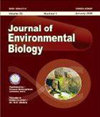
Journal Of Environmental Biology
中科院 4區(qū) JCR Q4
大類:環(huán)境科學(xué)與生態(tài)學(xué)
-
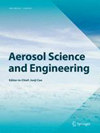
Aerosol Science And Engineering
中科院 4區(qū) JCR Q4
大類:環(huán)境科學(xué)與生態(tài)學(xué)
-
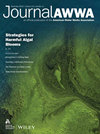
Journal American Water Works Association
中科院 4區(qū) JCR
大類:環(huán)境科學(xué)與生態(tài)學(xué)
-
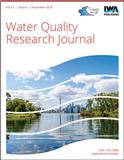
Water Quality Research Journal
中科院 4區(qū) JCR Q2
大類:環(huán)境科學(xué)與生態(tài)學(xué)
-
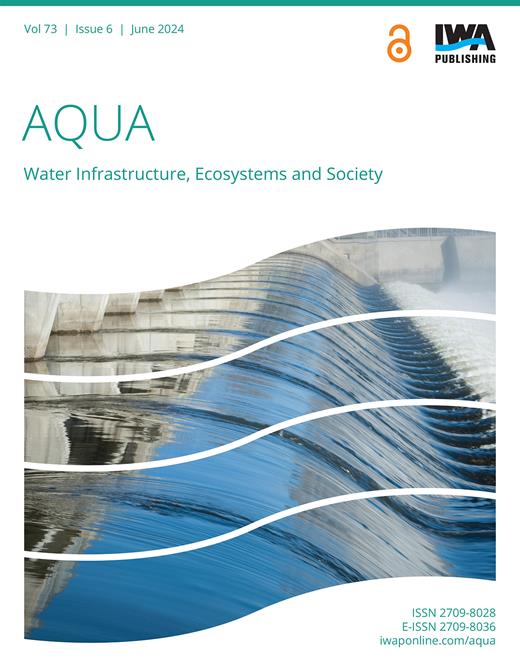
Aqua
中科院 4區(qū) JCR
大類:環(huán)境科學(xué)與生態(tài)學(xué)
-
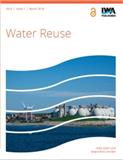
Water Reuse
中科院 4區(qū) JCR Q1
大類:環(huán)境科學(xué)與生態(tài)學(xué)
熱門(mén)期刊推薦
-
Environmental Science And Pollution Research
中科院 3區(qū) JCR
-
Journal Of Cleaner Production
中科院 1區(qū) JCR Q1
-
Resources Conservation And Recycling
中科院 1區(qū) JCR Q1
-
One Earth
中科院 1區(qū) JCR Q1
-
Environmental Modelling & Software
中科院 2區(qū) JCR Q1
-
Soil Ecology Letters
中科院 3區(qū) JCR Q1
-
Process Safety And Environmental Protection
中科院 2區(qū) JCR Q1
-
Journal Of Hazardous Materials
中科院 1區(qū) JCR Q1
